GTT Outing, Sept 26 to “Saijoji” Temple
久しぶりの「実」外出。BE の3㎞ Curfew とかで外に出られなかったから。CBが4人しか参加できなかったのが残念だったけど私のPresentationは Zoomでのお試し、Johnの助言、私の“やる気”が功を奏し(あくまでも自分の判断だけど)90%ぐらいの出来だった。12,000歩しか歩かなかったけど今の私にはちょうどよかった。
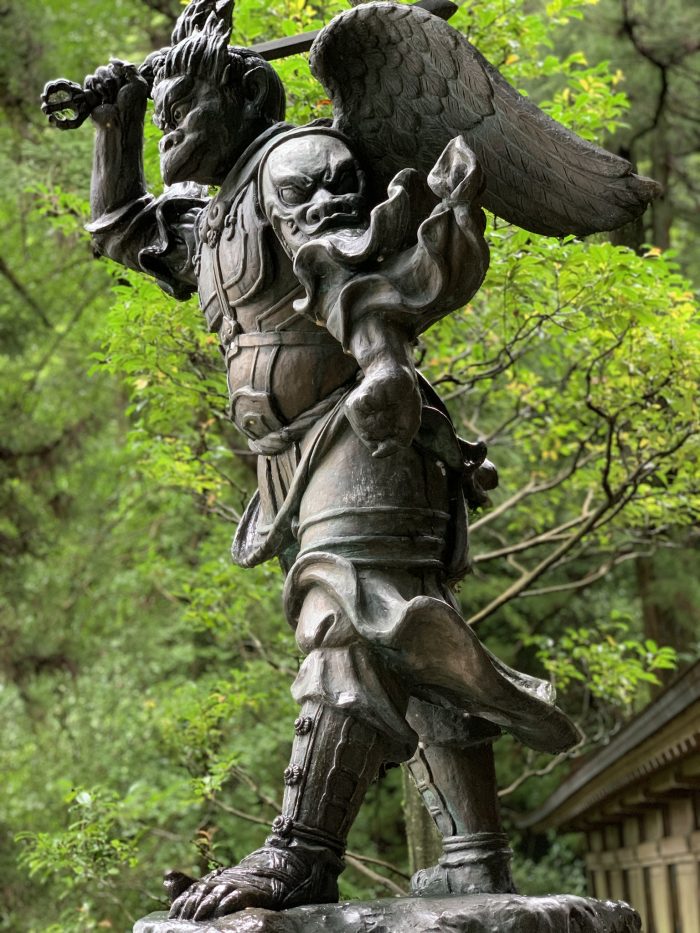
別名を烏天狗
久しぶりの「実」外出。BE の3㎞ Curfew とかで外に出られなかったから。CBが4人しか参加できなかったのが残念だったけど私のPresentationは Zoomでのお試し、Johnの助言、私の“やる気”が功を奏し(あくまでも自分の判断だけど)90%ぐらいの出来だった。12,000歩しか歩かなかったけど今の私にはちょうどよかった。

We have been having good time with John on Skype. I do not remember when and who initiate the meeting, but so far we have had more than five, maybe six sessions. We have become more closer and it makes my life colorful. John always helps us a lot.
We started this meeting on 23rd of May, Ken’s birthday and had 7 meetings so far.
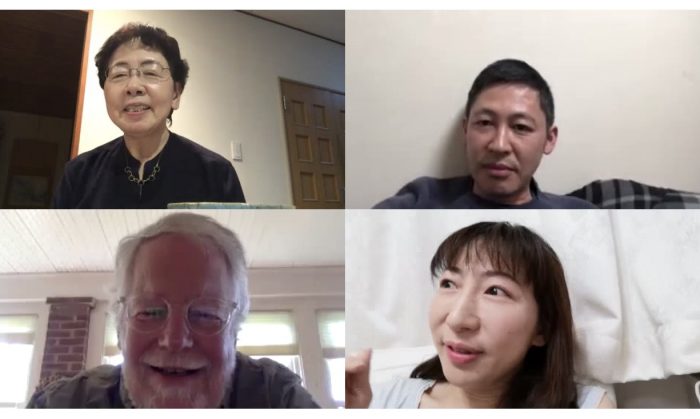
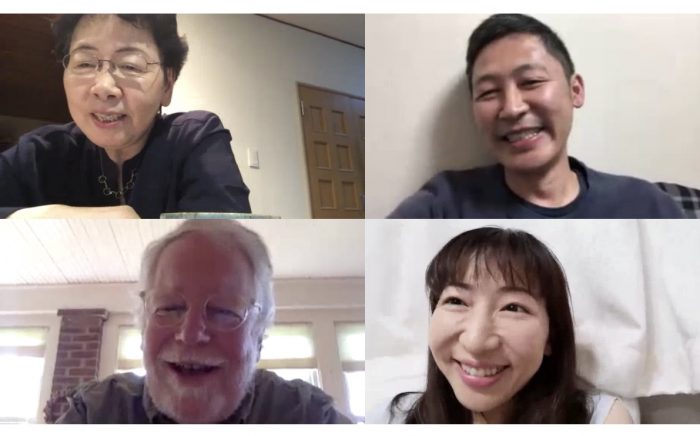
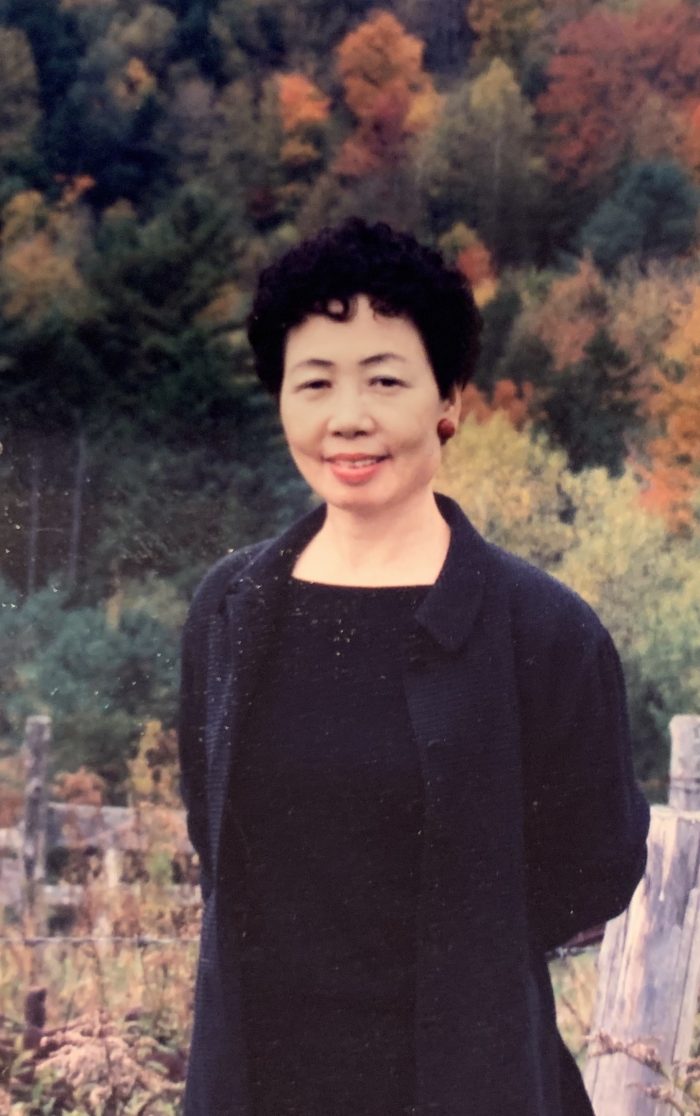
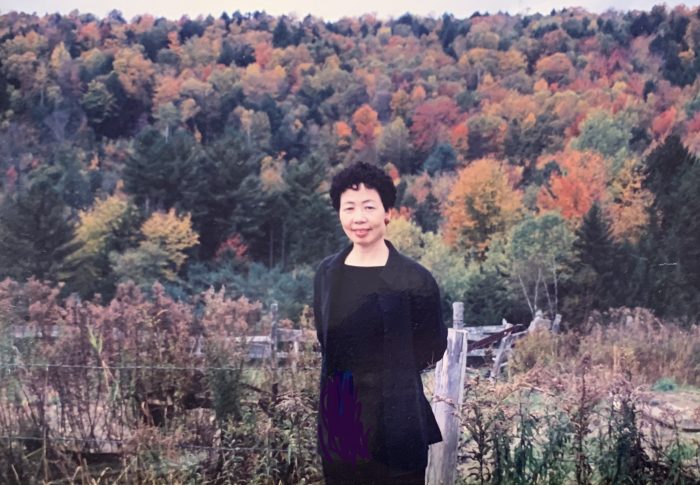
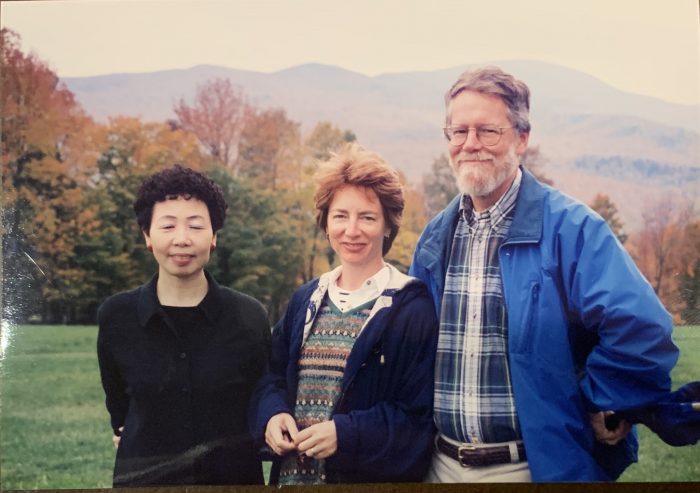
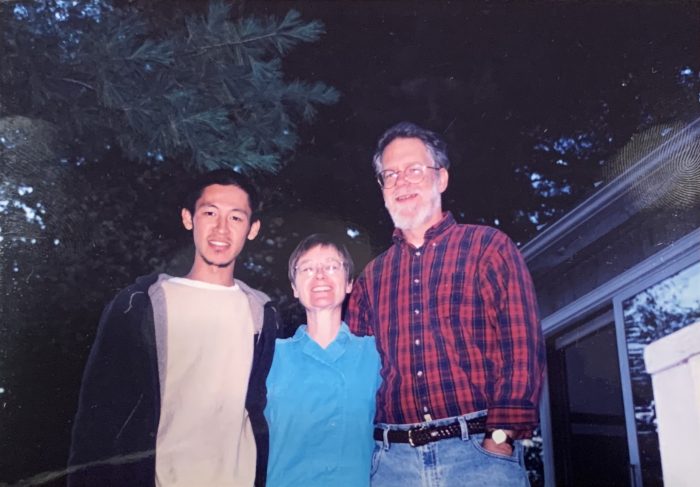
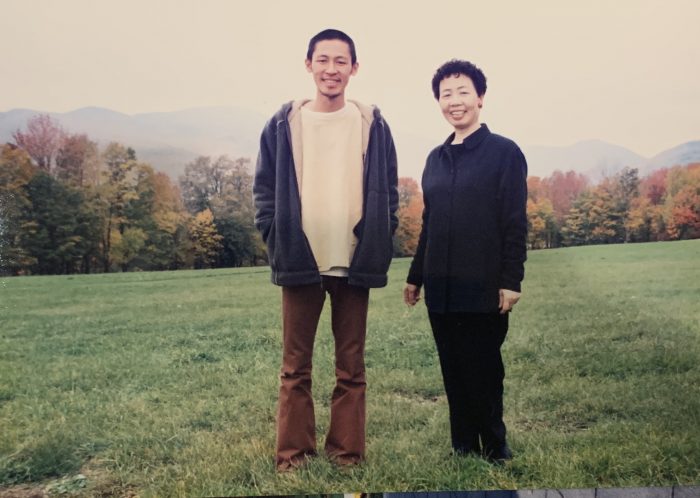
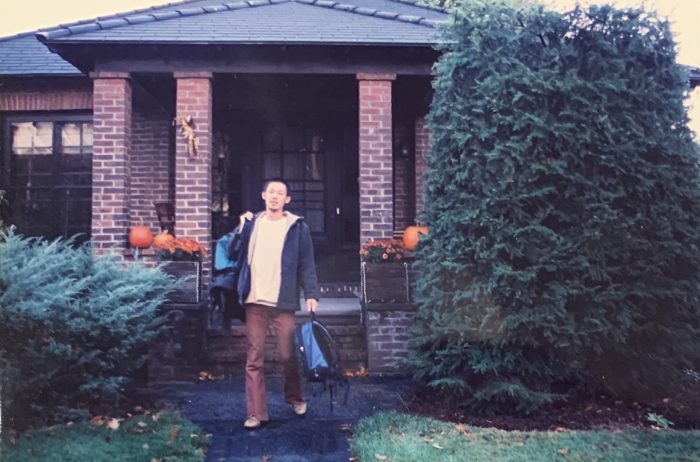
一番最初に感動したのは、”当代最高のオーボエ奏者、フランスの “モーリス・ブールグ (Maurice Bourgue) が野平一郎ピアノ伴奏でのWidmugを聴いたとき。 ”Du meine Wonn”の音の流れの美しさにあっけにとられた。その後、Widmungを歌うのは夢。でもその時を待っていたら来ないかもしれない!そう思って歌うことにした。先生はちょっと躊躇気味だったのも記憶しておこう。
| Du meine Seele, du mein Herz, Du meine Wonn’, o du mein Schmerz, Du meine Welt, in der ich lebe, Mein Himmel du, darein ich schwebe, O du mein Grab, in das hinab Ich ewig meinen Kummer gab! Du bist die Ruh’, du bist der Frieden, Du bist vom Himmel mir beschieden. Daß du mich liebst, macht mich mir wert, Dein Blick hat mich vor mir verklärt, Du hebst mich liebend über mich, Mein guter Geist, mein bess’res Ich! Du meine Seele, du mein Herz, Du meine Wonn’, o du mein Schmerz, Du meine Welt, in der ich lebe, Mein Himmel du, darein ich schwebe, Mein guter Geist, mein bess’res Ich! | 君は僕の魂 僕の心 僕の歓び ああ僕の苦しみ 君は 僕の生きる世界 僕がただよう天国 ああ 僕の墓 そこに 僕は 悩みを永遠に葬った 君は憩い 君は安らぎ 君は天から僕につかわされた人 君の愛によって自分の価値を知り 君のまなざしが僕を光で満たす 君は愛によって 僕を高める 僕の善き霊 より良き「私」! 君は僕の魂 僕の心 僕の歓び 僕の苦しみ 君は 僕の生きる世界 僕がただよう天国 僕の善き霊 より良き「私」! |
| (Friedrich Ruckert) |
2018年10月カーネギーホールでエレナ・ガランチャを聴いたとき、最初の曲がWidmungだった。そしてNussbaumもあった。
“du” is owl’s hooing sound, always a very lon–ng closed vowel.
10年ほど続けている英語のクラスで取り上げ、話をした。きっかけは朝日新聞小野正嗣の文芸時評を読んだから。小川洋子の記憶と文学の関係についてはカズオ・イシグロと通じるものがある、というかほとんど同じだ。小川さんの8ヒロシマの記憶に関するメモはその内容はもとより文章が美しい。NYTの英訳にはもどかしさを感じたけど「文化の違いだから・・・」。書評の小野正嗣の文章も美しい!
How We Retain the Memory of Japan’s Atomic Bombings: Books
Literature is a refuge we turn to when we are forced to confront/ contradictions that lie beyond reason, writes the Japanese novelist Yoko Ogawa.
The atomic bombing of Hiroshima occurred on Aug. 6. The bombing of Nagasaki on Aug. 9. The announcement of surrender came on the 15th. In Japan, August is the time when we remember the dead.
This year, the 75th anniversary of the atomic bombings would have been observed during the Tokyo Olympics. But the Games were postponed because of the spread of the novel coronavirus, and we will be left instead to offer our prayers for the dead in an atmosphere of unexpected calm.
But, in fact, this tiny box contained something more important: the innocence of a young boy who had been full of anticipation for his simple lunch, and his mother’s love. Even when the last victim of the atomic bomb has passed away and this lunchbox is no more than a petrified relic, as long as there is still someone to hear the voice concealed within it, this memory will survive. The voices of the dead are eternal, because human beings possess the small boat — the language of literature — to carry them to the future.
死者の声を運ぶ小舟
1964年の東京オリンピック大会で聖火の最終ランナーを務めたのは、19歳の、無名の陸上選手だった。その青年は、原爆投下の当日、広島で生を受けていた。真っ白いランニングシャツと短パンを身に着け、聖火台に続く長い階段を駆け上がる彼の姿は、実に清潔で、均整がとれ、全身に若々しさが満ちあふれていた。この映像を目にするたび、敗戦からわずか19年で、世界中の人々が集まるスポーツの祭典が日本で催された、という現実に驚かされる。人類が経験したことのない徹底的な破壊の中から誕生した、一人の生命が、炎をなびかせながら、一段一段、火を運んでゆく。最終聖火ランナー選出の裏に、政治的な意図が入り乱れていたとしても、広島で生まれた19歳の青年が放つ生命力には、何のごまかしもなかった。
今、私の手元に、広島平和記念資料館の収蔵品を撮影した写真集『Hiroshima Collection』(撮影土田ヒロミ)がある。中学1年生、折免滋(おりめんしげる)君の弁当箱と水筒の写真を見つめている。滋君は動員学徒として作業中に、爆心地から500メートルで被爆。川の土手に積み重ねられた遺体のカバンから、お母さんがこれを発見した。「今日は大豆ご飯だから、昼飯が楽しみだ」と言って出かけたという。弁当箱は歪み、蓋には穴が開き、中身は真っ黒に炭化している。
この小さな箱には、息子を思う母親の愛情と、質素な大豆ご飯を楽しみにしていた少年の無邪気さが詰まっている。たとえ原爆の体験者が一人もいなくなっても、弁当箱が朽ちて化石になっても、小さな箱に潜む声を聴き取ろうとする者がいる限り、記憶は途絶えない。死者の声は永遠であり、人間はそれを運ぶための小舟、つまり文学の言葉を持っているのだから。
ここから急にカズオ・イシグロになるかは??(単に好きだから、書き留めておきたいから・・・)
The full text of Nobel Prize-winning British novelist Kazuo Ishiguro’s message for Sunday’s 75th anniversary of the atomic bombing in Nagasaki (2020/8/9)
This is the anniversary of a terrible event. But this milestone also marks seventy five years during which time there has been no repeat of what was inflicted on the people of Nagasaki that day. My mother, then a teenager in the city, was able to go on to enjoy a long peaceful life. So this is an anniversary that brings triumph and hope, as well as horror and sadness.
Let us not forget how fragile our civilization remains. And in our current, troubled times, let us not forget the importance of the international cooperation and understanding that has brought us safely through these years. Let us remember the huge dangers that continue to threaten us, and the supreme value of human life.
残念ながらこの方はついに公的な楽しい出番はもうなくなってしまったようです。これまでの記事もこれでおしまいです。
Akie評はつづく(9/2)
こちらはAbe-shiの話
「命を懸けて国を守れ」と他人に言う人が、自分の政治生命が危うくなり、健康にも影響が出て、ポイッと仕事を投げ出した。
(毎日新聞吉井記者の目が役に立つ) 過去の、軽薄と言っても良い歴史修正主義的な発言は知っていたし、第1次政権で異様な執念を見せていた教育基本法改正にも強い危うさを感じてはいたのです。それでも、病から第1次政権を投げだし、世間の非難の嵐に耐えて、ついに再登板したあなたです。今度こそ、人の痛みを知る懐の深い政治家として、東日本大震災で傷ついた日本をまとめてくれるだろう、と思っていました。ところが、違いました。分断をあおってきたのは首相、あなただった! <全文>
白井聡の論考(8/31)
この政権の存在そのものが人間性に対する侮辱であった。その象徴と目すべき事件が、伊藤詩織氏に対する山口敬之のレイプとそのもみ消しである。失政を重ね、それを糊塗しなければならないからこそ、山口のごとき提灯持ちの三下が安倍晋三にとっては大変貴重な人材となった。この事件は、犯行そのもの、逮捕の撤回、明るみに出た際の安倍支持者による被害者への誹謗中傷、もみ消し当事者の中村格警視庁刑事部長(=当時)のその後の出世という経緯のすべてが腐りきっている。こうして腐敗は底なしになった。森友学園事件、加計学園事件、桜を見る会の問題などはその典型であるが、安倍政権は己の腐りきった本質をさらけ出した。不正をはたらき、それを隠すために嘘をつき、その嘘を誤魔化すためにさらなる嘘をつくという悪循環。それはついに、一人の真面目な公務員を死に追い込んだ。高い倫理観を持つ者が罰せられ、阿諛追従して嘘に加担する者が立身出世を果たす。もはやこの国は法治国家ではない。
例えば、新元号の発表と改元の時の政権の振る舞いを思い出してみれば、それは明白だ。先の天皇(現上皇)の譲位の意思に対しては執拗な抵抗を試みたくせに、新元号の発表となれば、安倍は前面にしゃしゃり出て、「令和」に込めた自分の「思い」を滔々と語った。国民主権の原則に立つ現行憲法下における元号は、「天皇と国民の時間」を意味するはずである。したがって、その発表に際しては、国民の一時的な代表にすぎない為政者の振る舞いは抑制的であるべきだという発想は、そこには一切見て取れなかった。むしろ反対に、安倍晋三こそが「令和」の産みの親であるというアピールが盛んにされたのである。それは国家の象徴的次元における「私物化」にほかならなかった。
より実体的な領域を挙げるならば、大学入試改革の問題を見てみればよい。十分に機能してきた制度(センター試験)をわざわざ潰して民間業者を導入する主たる動機は、安倍の忠実な従僕たちの利権漁りである。安倍自身の知性に対する憎悪がそれを後押しした。もちろん、次世代の学力などは完全にどうでもよい。ある世代が丸ごと私物化されようとしたのであり、それは言い換えれば、この国の未来を犠牲にして利権に引き換えようとしたということにほかならない。かくして、モラルは崩壊し、政治の場、国家機構そのものが、政官財学で跋扈する背広を着た強盗どもによる公金のぶん取り合戦の空間と化してきた。新型コロナ対応のための補助金支給業務において、この腐敗は鮮やかに現れた。私物化の原則は権力の頂点から発し、恥を知る者を除く万人を私物化競争へと誘い出して行ったのである。
それにしても、安倍政権におけるこうしたスキャンダルを列挙すると、それぞれの件の矮小性にあらためて驚かされる。ロッキード事件やリクルート事件は、それぞれ時代を画するものであった。これに対して、安倍晋三がらみの事件の実質は、山口敬之レイプ事件、森友学園事件=昭恵夫人の暴走・国有地の叩き売り、加計学園事件、桜を見る会、河井夫妻の事件であるにすぎない。どの事件にも、その背後で進行する社会構造の大変化などを感じさせるものは何もなく、ただひたすら凡庸でケチ臭い。それは、安倍晋三という人間のパーソナリティの身の丈にまさに合致しているとも言えるのだが。
しかし、このことは、これらの事件の社会的有害性の小ささを意味するものではない。まさにこうしたスケールの小さい悪事の積み重ね、その隠蔽、嘘に次ぐ嘘といった事柄が、公正と正義を破壊し、官僚組織はもちろんのこと、社会全体を蝕んできたのである。その総仕上げが、黒川弘務を検事総長に就任させようという策動であったが、これが国民の意思の爆発的な噴出(ツイッター・デモ)によって阻止されたことの意義は巨大であると言えよう。安倍の辞任は病気を原因とすると称してはいるが、支持率の低下と民衆からの批判によるストレスがそこには介在しており、その意味で民衆の力によって追い込まれたという側面を確実に持つ。
/Abe政治の本質:「道半ば」の幻想で人々をだまし続けた(中島武志)…(怒)2020/9/29
日本オリン・パラ組織委員会会長の「とんでもない女性差別発言」2021/2/6から
HRW「金メダル級差別」「はびこる女性差別をあらわに」。こう題された英文記事をHRWが公式サイトに出したのは2月4日昼。森氏が「女性がたくさん入っている理事会は時間がかかる」などと日本オリンピック委員会(JOC)の評議員会で発言した翌日だった。Human Rights Watch土田さんほか5人の意見:Full Tex
Eva Delle’acqua『Villanelle』デラクア『田園詩』(これは歌えない!)
| Composer: Eva Dell’Acqua 1893年 J’ai vu passer l’hirondelle Dans le ciel pur du matin Elle allait, à tire-d’aile, Vers le pays où l’appelle Le soleil et le jasmin. J’ai vu passer l’hirondelle! J’ai longtemps suivi des yeux Le vol de la voyageuse… Depuis, mon âme rêveuse L’accompagne par les cieux. Ah! ah! au pays mystérieux! Et j’aurais voulu comme elle Suivre le même chemin… J’ai vu passer l’hirondelle, etc. | ツバメが飛んでゆくのを見た 朝の澄み切った空を 颯と飛んでいった 太陽とジャスミンを呼ぶ 国へ向かって ツバメが飛んでゆくのを見た! 私はずっと目で追っていた その旅人の飛行を…. それからというもの 私の夢見がちな魂は 空と共に在る ああ、秘密の国よ! 私もツバメのように その道を行きたいのに ツバメが飛んでゆくのを見た |
ペルシア王コシュローに殺されたカンバヤ王の娘、エミラが歌うアリア。エミラは父の敵を討つために、男装してコシュローの宮廷に仕え、まんまと側近となることに成功。そして、王位の継承が叶わずにくすぶっているコシュローの息子シロエをたぶらかし、彼だけに自らの復讐計画を打ち明ける。
Ch’io mai vi possa lasciar d’amare(あなたを愛するのをやめることなど)は、第三幕でエミラがシロエを前に歌う、いわば「偽りのラブソング」。よって、男性は歌わないと思われる。
動画(la)
| Ch’io mai vi possa lasciar d’amare, non lo credete, pupille care, né men per gioco v’ingannerò. Voi foste, e siete le mie faville, e voi sarete, care pupille, il mio bel foco fin ch’io vivrò. | 私があなたを愛せなくなる ことがあるなんて 決して、決して信じないで、 愛しい瞳よ たとえ戯れにでも あなたを欺いたりはしません あなたは昔も今もずっと私の 閃きでしたし そしてあなたは、愛しい瞳よ 私の美しい炎なのです 私の命のある限り |
| Lyrics was added by Richenza |
動画(La#)
| 作曲 | ゲオルク・フリードリヒ・ヘンデル – George Frideric Handel |
|---|---|
| 作詞 | ニコラ・ハイム – Nicola Haym |
ヘンデルの別の曲
Viens, les gazons sont verts · Florence Tanzilli, François Riu-Barotte Charles Gounod : 19 mélodies (Où voulez-vous aller ?)
| Viens, les gazons sont verts! | おいで!芝生はみどり! |
| ♬ Si tu dors, jeune fille, Debout, debout! voici le soleil! Chasse de tes yeux l’indolent sommeil! C’est l’heure du réveil! Chasse de tes yeux l’indolent sommeil! C’est l’heure du réveil! | もし眠っているのなら若い娘よ 起きなさい 起きなさい! ほら もう太陽が! きみの目から 物憂げなまどろ みを追い払いなさい 目覚めの時間ですよ! |
| Suis moi, vive et gentille! Pieds nus, viens! Les gazons sont verts! Les ruisseaux jaseurs par les bois déserts Promènent leurs flots clairs! Les ruisseaux jaseurs par les bois déserts Promènent leurs flots clairs! | 僕のあとについておいで 生き生きと優しく! 裸足でおいで! 芝生はみどり おしゃべりな小川は 人気のない森を抜けて 澄んだ流れをめぐらせている! |
| Viens! viens! Les gazons sont verts! Viens! viens! Les gazons sont verts! Viens! Viens! viens! Les gazons sont verts! | おいで!芝生はみどり! おいで!芝生はみどり! おいで!芝生はみどり! |
Charles Gounod : 19 mélodies (Où voulez-vous aller ?)
Designed using Brigsby Premium. Powered by WordPress.